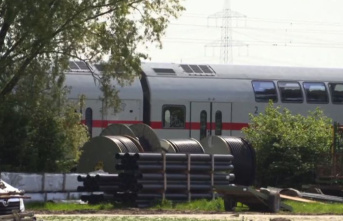The quick freeze procedure provides that traffic data can be stored if a serious criminal offense is suspected. If the data is then actually used for the investigations, it can be transmitted to the responsible authorities. Both steps require a court order, the bill says.
Traffic data includes the start and end of a phone call, the location of mobile devices and IP addresses - but not the content of phone calls or chats. Robbery, extortion, bribery, gang theft, murder and manslaughter, as well as child sexual abuse and child pornography are considered serious criminal offenses to which the regulation can be applied.
"The previous data retention in Germany violates fundamental rights," said Buschmann. The European Court of Justice decided that with absolute clarity. "It is now our task to finally remove the previous regulations on data retention from the law."
If there is a suspicion of a serious crime, relevant telecommunications data could be secured from the providers for the procedure at an early stage of the investigation. At the same time, it is guaranteed that the basic rights of the citizens are protected and that they are not placed under general suspicion.
The Luxembourg judges had decided that data retention of IP addresses was possible. However, this is not included in Buschmann's draft. Interior Minister Faeser doesn't like that. The possibilities granted by the European Court of Justice (ECJ) to create targeted storage obligations "are not implemented in the draft," she told the Düsseldorf "Handelsblatt". "What the ECJ has expressly declared to be compatible with our fundamental rights and is urgent for the fight against serious crime is required, we should implement it."
The ECJ also allows specific storage arrangements for places such as airports or train stations and for areas with a high crime rate, Faeser said. "These statements by the European Court of Justice are very important for combating serious crime and protecting our internal security," emphasized the Minister.
The legal policy spokesman for the Union faction, Günter Krings (CDU), accused Buschmann of ignoring the scope opened up by the ECJ and the needs of the investigators. They urgently needed access to IP addresses, especially when investigating child abuse and child pornography, he explained.
The abuse officer Kerstin Claus also criticized Buschmann's template as unsuitable. The so-called quick freeze regulation does not go far enough, because it only freezes traffic data that is still available from the providers, Claus said in the new edition of the Deutsche Richterzeitung. However, the investigators are repeatedly faced with the situation "that the companies do not store anything at all".












